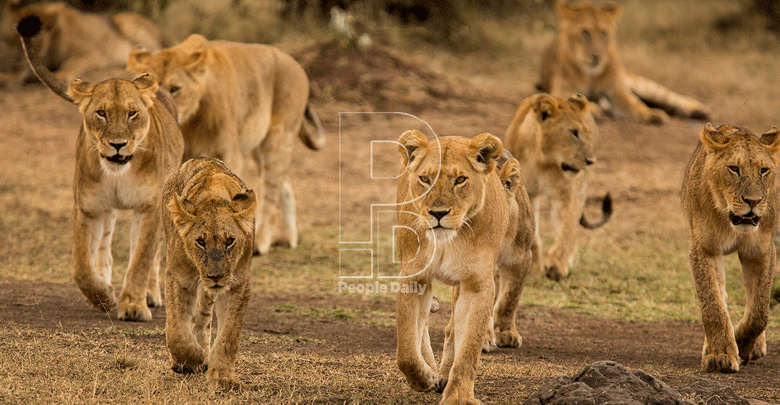How long will the lions’ roar last? The King of the Jungle
By Milliam Murigi, August 13, 2019Tourists, local and international, deem their visit both successful and exciting if they spot the big five in the wild. Invariably, spotting a lion is a once-in-lifetime thing, highly prized.
Unfortunately, the world’s most iconic animal species are facing a catastrophic decline, with the population in the continent dropping 50 per cent in only 20 years.
In Kenya, there are fewer than 2,000 lions left in the wild, with reports indicating a further decline. Now, a new report shows that lions will not survive the 21st century on goodwill alone.
Neither will they survive if reduced to being merely the centerpiece of a high-status vacation for foreign visitors to the continent, or even the target of trophy hunters.
Prepared by Equilibrium Research and commissioned by the Lion Recovery Fund for World Lion Day 2019, The New Lion Economy: Unlocking the value of lions and their landscapes, calls for the conservation and management of resources that support lions and, in turn, humans.
“If Africa’s parks and reserves were resourced and managed effectively and the communities around them supported, we could have three to four times the number of lions as we have today,” it reads.
Their decline is a tragedy for the whole world. And if Africa loses more lions, many countries will not only lose the direct economic benefits that they bring through tourism and trophy hunting, but also a host of other benefits that come from the habitats through which lions stalk.
The report lists ecosystem degradation, climate change and low funding for protected areas, (where over 50 per cent of the remaining lion range is concentrated), as the main contributors to this decline.
Wildlife vs development
Although lions generally live in fairly small social units, they are truly landscape species. Their territories can spread over hundreds of kilometres.
To thrive, lions need to disperse and this is only possible if suitable habitat and prey is available in large landscapes or when smaller habitat patches are connected through effective networks of ecological corridors
“It is a false dilemma to suppose that Africa’s wildlife and wild landscapes must or should be sacrificed in order for the continent to modernise and maintain the steady pace of its economic growth.
The challenge is how do we line up all the development goal blueprints and marshal the various interests they represent in a way that ensures wildlife, like lions, have a future in modern Africa?” asks Kaddu Kiwe Sebunya, Chief Executive Officer, African Wildlife Foundation (AWF).
Sebunya adds that lion survival depends on the continent itself, meaning that there is need to draw on the huge cultural value of lions and build consensus about the importance of their survival in the wild.
“It depends on people, governments and industry recognising that concerns about lion survival are not just harking back to a romanticised past, but symbolic of a whole range of other values that are at risk of disappearing along with the lion,” he says.
Intentional investment
Lion conservation supports other ecosystem services (free benefits human get from nature) such as water sources, carbon sinks to mitigate climate change, food security, and protection against weather-related disasters.
“Lion conservation conserves much more than just lions. Lionscapes provide more ecosystem services, the benefits that humans receive from healthy ecosystems, than the average across Africa. Yet many of these services will disappear if ecosystems are lost or degraded,” he adds.
Lions directly support ecosystem services by attracting tourists and trophy hunters worth millions of dollars annually, generating economic benefits and attracting new revenues and lion conservation helps to build community and political support for co-existence.
The report calls for more efforts into lion conservation, which should not be left only to conservationists, but anyone interested in a sustainable and vibrant future for Africa.
“There is an abundant reason to take lion conservation seriously and we call on people throughout Africa and beyond to cooperate in ensuring that Africa’s pride survives the 21st century,” it reads.
Some of the recommended actions include measuring and communicating the value of ecosystems to the community as well as rebuilding ecosystems to improve food, water and human security on the continent. Governments are also urged to invest in and create policies that encourage lion conservation as their existence indicate a healthy ecosystem.
